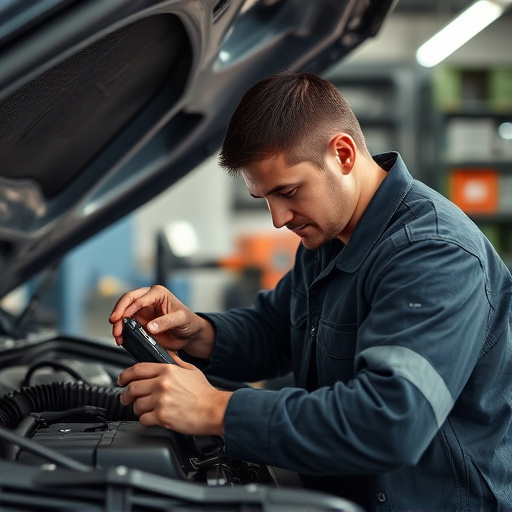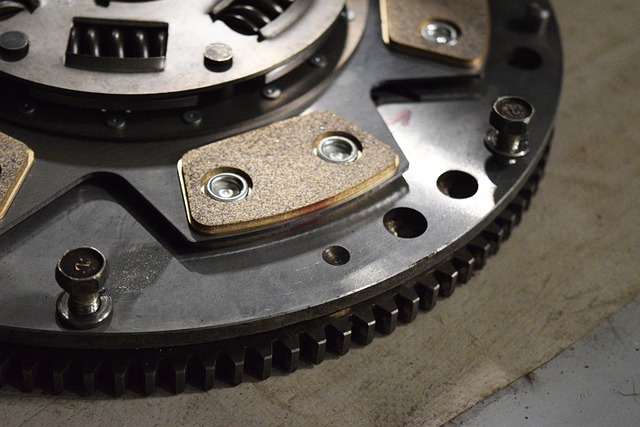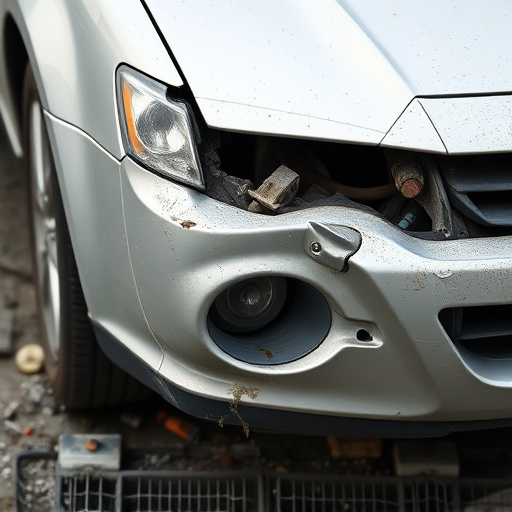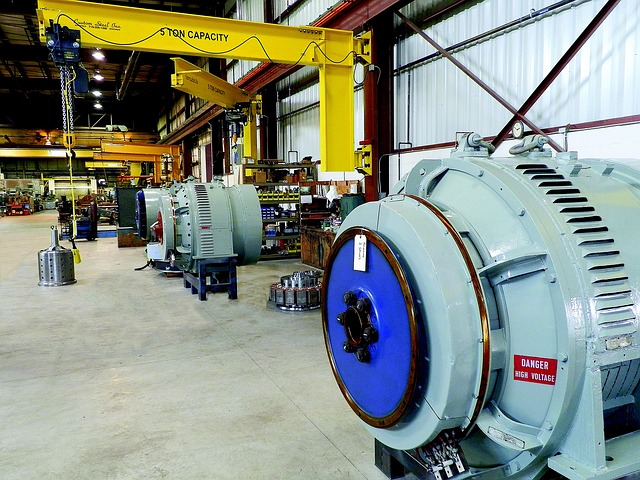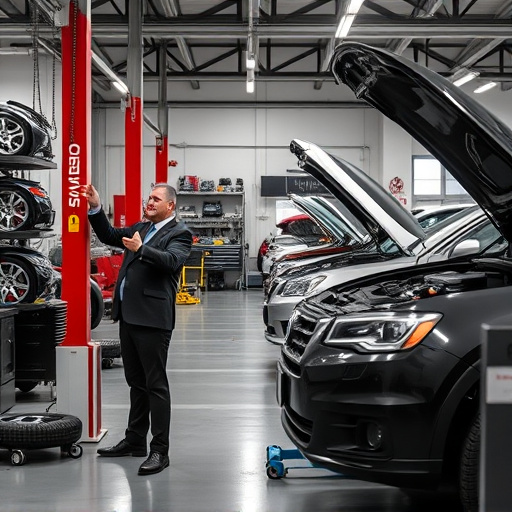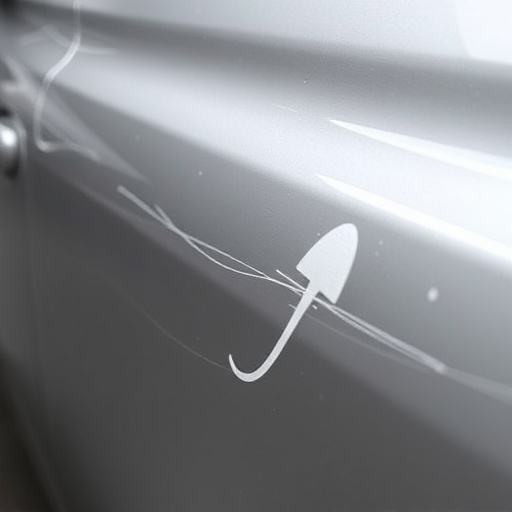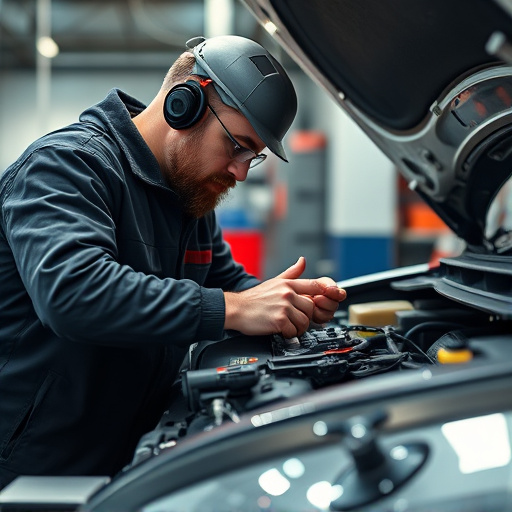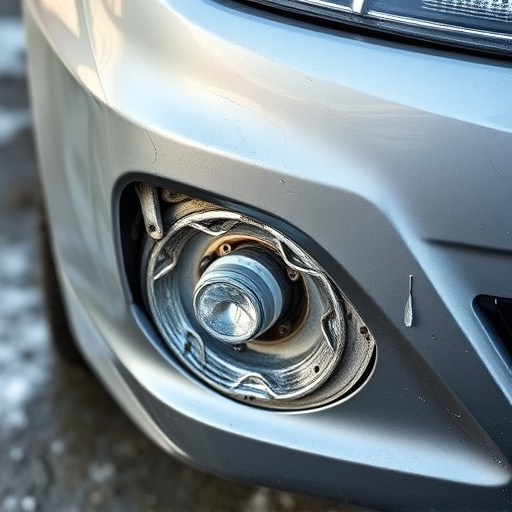The airbag system, a vital safety feature, demands specialized and ethical repairs for optimal functionality. Skilled technicians calibrate and test sensors, inflators, and airbags, ensuring correct deployment during collisions. Reputable body shops offering airbag system repair services prioritize customer trust by adhering to strict standards, employing meticulous diagnostics, using genuine parts, and providing transparent communication about damage assessments and costs. Strict adherence to safety protocols and industry standards guarantees reliable and effective repairs, fostering consumer confidence in the integrity of auto collision centers.
Airbag system repair is an integral part of ethical automotive repair practices, ensuring both safety and trust. As a critical component of modern vehicles, proper maintenance and timely replacement are vital for passenger protection. This article explores the multifaceted role of airbag repairs in fostering transparency and customer confidence. We delve into the ethical considerations and best practices that not only enhance vehicle safety but also set benchmarks for responsible automotive care.
- The Role of Airbag System Repair in Ensuring Safety and Trust
- Ethical Considerations: Promoting Transparency and Customer Confidence
- Best Practices for Efficient and Responsible Airbag Repairs
The Role of Airbag System Repair in Ensuring Safety and Trust

The airbag system is a critical safety feature in modern vehicles, designed to protect occupants during a vehicle collision. Airbag system repair plays a pivotal role in ensuring that this life-saving technology remains functional and reliable. As such, it’s an integral component of ethical automotive repair practices, prioritizing the safety and trust of drivers. Skilled technicians are required to perform these repairs, as they involve sophisticated sensors, inflators, and airbags that must be precisely calibrated and tested to function correctly in an emergency.
When a vehicle experiences a collision, proper airbag system repair is essential not only for the immediate safety of the occupants but also for the overall integrity of the vehicle’s structure. Reputable body shop services offering specialized airbag system repair ensure that the vehicle meets strict safety standards, thereby restoring the trust of its owners and passengers. This process involves meticulous diagnostics, careful replacement of damaged components, and rigorous testing to confirm the airbag’s readiness for future deployment, all of which contribute to a culture of ethical and responsible vehicle maintenance.
Ethical Considerations: Promoting Transparency and Customer Confidence

In the realm of automotive repairs, especially when it comes to airbag system repair, ethical considerations play a pivotal role in fostering trust and ensuring customer safety. Transparency is key; car body shops must clearly communicate the extent of damage, proposed solutions, and costs associated with airbag repairs. This promotes customer confidence, as they are well-informed about the processes, avoiding any potential misgivings or suspicions. An honest approach to airbag system repair not only builds a positive reputation but also encourages customers to prioritize their safety and that of their loved ones on the road.
Moreover, ethical practices in vehicle repair extend beyond transparency. Car bodywork services must adhere to industry standards and use genuine parts when repairing airbag systems to guarantee their effectiveness and reliability. This commitment to quality not only ensures the integrity of the vehicle but also reinforces the car body shop’s ethical stance, solidifying its position as a responsible and trustworthy service provider in the automotive industry.
Best Practices for Efficient and Responsible Airbag Repairs

When it comes to airbag system repair, best practices are paramount to ensure safety and ethical automotive repair standards. The process demands meticulous attention to detail due to the critical nature of airbags in modern vehicles. Repairs should be conducted by trained professionals equipped with specialized tools and knowledge of various car makes and models. Proper training ensures that technicians follow manufacturer guidelines, using only authorized parts to maintain the integrity of the airbag system.
Efficient repairs involve a systematic approach, from initial inspection to final re-testing. This includes carefully removing and inspecting damaged components, replacing faulty parts with genuine ones, and rigorously testing the airbag’s functionality after repair. Reputable auto collision centers prioritize responsible practices by adhering to industry standards, staying updated on safety recalls, and offering transparent car repair services. Implementing these best practices not only guarantees optimal performance but also reinforces consumer trust in auto body restoration processes.
Airbag system repair is not just a technical task but a cornerstone of ethical automotive repair practices. By prioritizing transparent communication, responsible handling of sensitive components, and adherence to best practices, technicians contribute to maintaining customer trust and ensuring the safety of every journey. Investing in trained professionals and up-to-date equipment is crucial for effective and efficient airbag repairs, ultimately safeguarding lives on the road.
